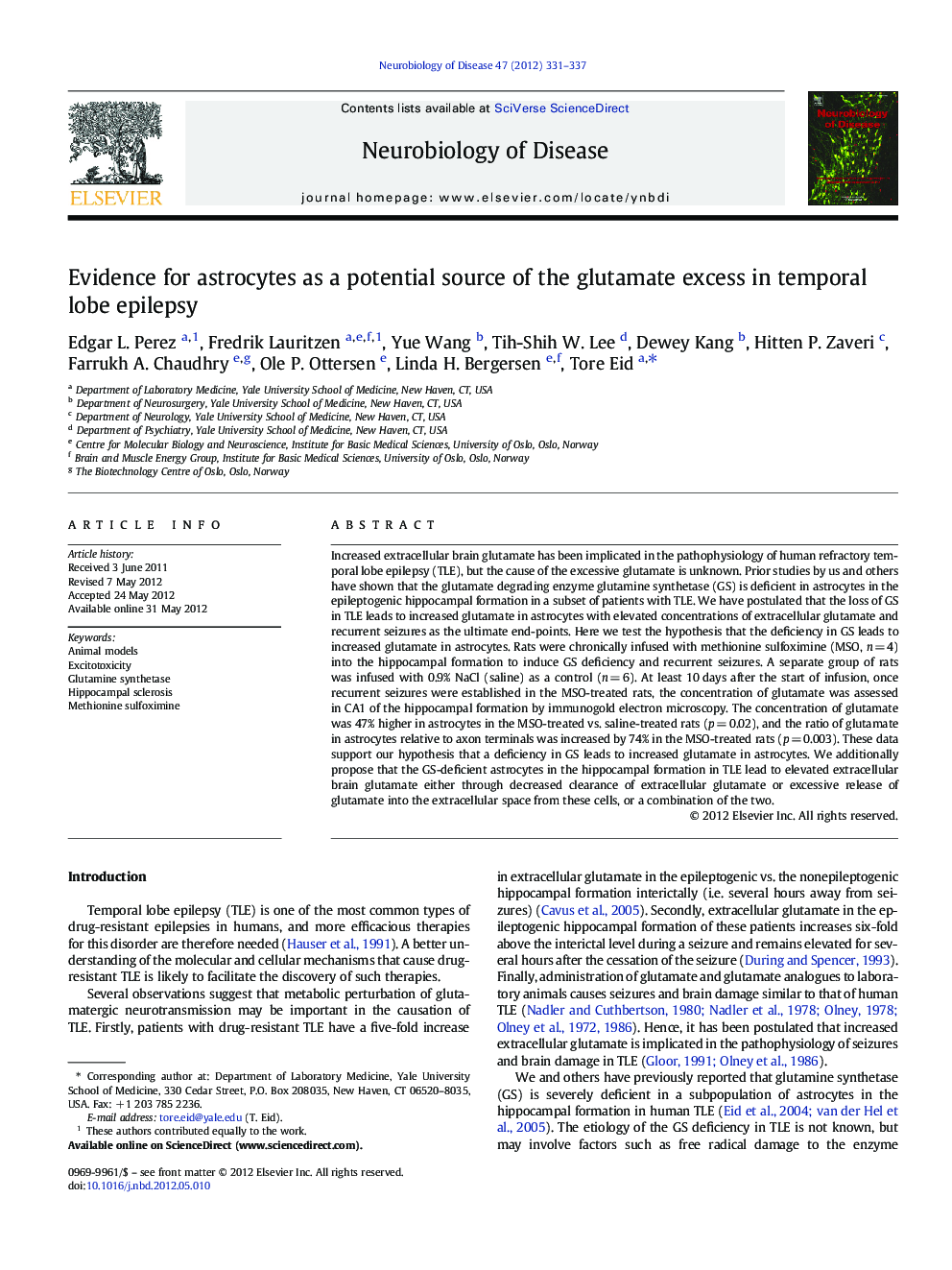| Article ID | Journal | Published Year | Pages | File Type |
|---|---|---|---|---|
| 6022776 | Neurobiology of Disease | 2012 | 7 Pages |
Increased extracellular brain glutamate has been implicated in the pathophysiology of human refractory temporal lobe epilepsy (TLE), but the cause of the excessive glutamate is unknown. Prior studies by us and others have shown that the glutamate degrading enzyme glutamine synthetase (GS) is deficient in astrocytes in the epileptogenic hippocampal formation in a subset of patients with TLE. We have postulated that the loss of GS in TLE leads to increased glutamate in astrocytes with elevated concentrations of extracellular glutamate and recurrent seizures as the ultimate end-points. Here we test the hypothesis that the deficiency in GS leads to increased glutamate in astrocytes. Rats were chronically infused with methionine sulfoximine (MSO, n = 4) into the hippocampal formation to induce GS deficiency and recurrent seizures. A separate group of rats was infused with 0.9% NaCl (saline) as a control (n = 6). At least 10 days after the start of infusion, once recurrent seizures were established in the MSO-treated rats, the concentration of glutamate was assessed in CA1 of the hippocampal formation by immunogold electron microscopy. The concentration of glutamate was 47% higher in astrocytes in the MSO-treated vs. saline-treated rats (p = 0.02), and the ratio of glutamate in astrocytes relative to axon terminals was increased by 74% in the MSO-treated rats (p = 0.003). These data support our hypothesis that a deficiency in GS leads to increased glutamate in astrocytes. We additionally propose that the GS-deficient astrocytes in the hippocampal formation in TLE lead to elevated extracellular brain glutamate either through decreased clearance of extracellular glutamate or excessive release of glutamate into the extracellular space from these cells, or a combination of the two.
⺠Increased extracellular brain glutamate has been implicated in the causation of epilepsy. ⺠However, the mechanism of the glutamate excess is not known. ⺠We now show that astrocytes in the epileptogenic hippocampus are enriched with glutamate. ⺠We propose that these cells may be critically involved in the glutamate excess in epilepsy.
